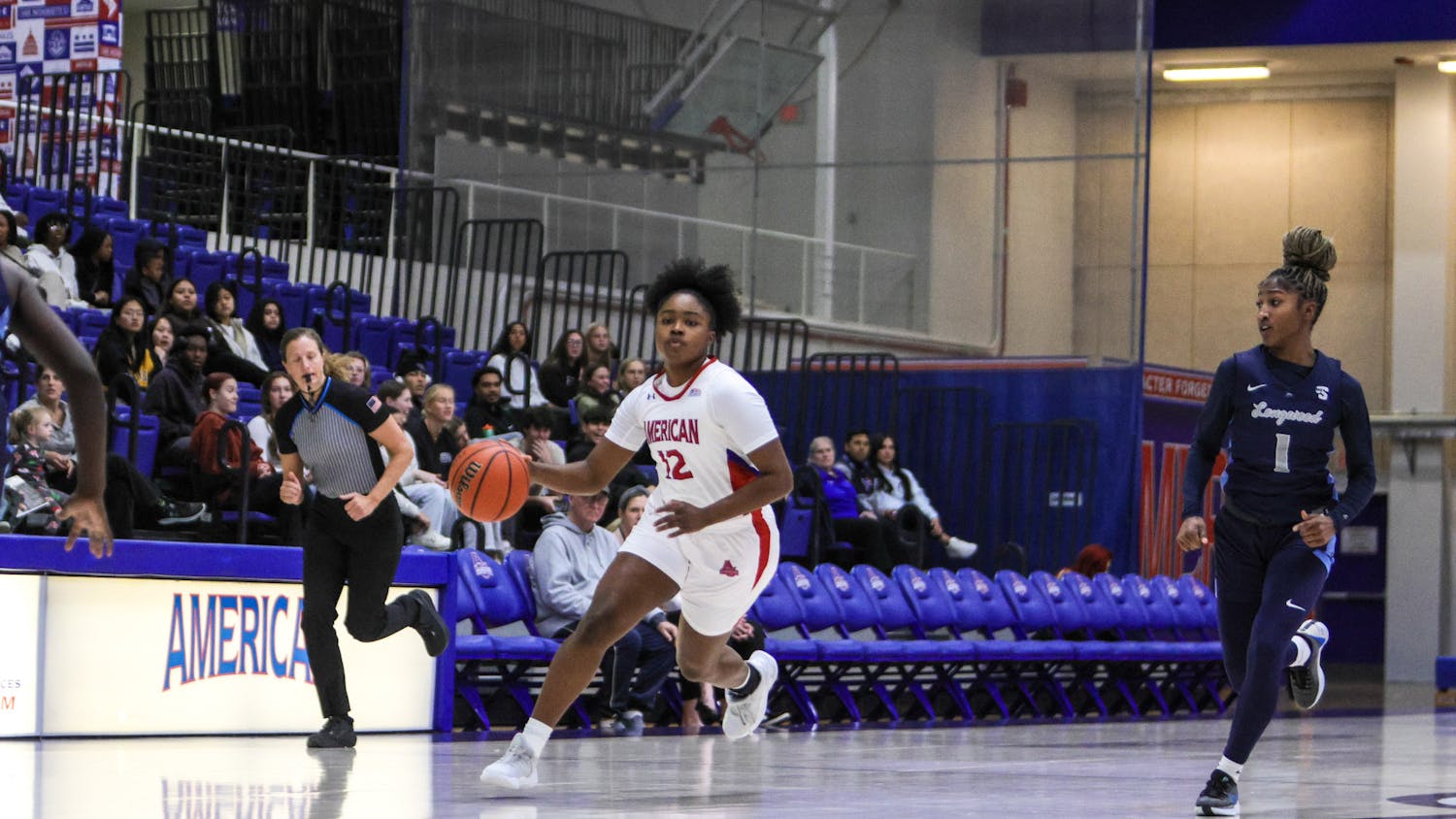Students, faculty and staff gathered in a packed room in Mary Graydon Center on Wednesday morning for the workshop, “Anti-racism and Allyship: A Campus Conversation.”
This discussion was created as a way for the AU community to talk about their frustrations toward the hate crime on May 1 and the fall incidents where African-American female students were targeted by having bananas thrown at them or left outside their dorm room door.
Attendees also wanted to learn how to take action to prevent this from continuing, said Robin Adams, assistant director for the Center for Community Engagement and Service. The discussion was mostly attended by staff with a few students and faculty attending.
Attendees said they felt horrified by the May 1 hate crime and do not want to become merely reactionary to each incident. However, Adams said that faculty and staff need to listen to the students in order to make progress toward becoming a more unified campus.
“I attended the town hall yesterday, and for the first time I felt like the enemy,” Adams said. “For the first time, I didn’t respond or use my voice.”
Quentin Johnson, an employee of the Kogod School of Business admissions office, said that the administration should have held a press conference for the public instead of just sending campus-wide memos because the hate crime is one incident that reflects the underlying racial tensions at AU.
“Those young people in the fall feel just as impacted now as they did then,” Johnson, who graduated with an MBA from AU in December, said. “It’s a feeling of helplessness.”
Johnson said that the first report in the fall claimed there wasn’t enough evidence to call it a hate crime, which caused a lot of pain within the community and continues to do so today.
“How could we not have called it a hate crime?” he said. “Now, it’s a festering wound that’s already there and adding salt on top of it at the same time.”
Adams said that AU has a legacy of having race issues on campus, even before the latest events over the last two years. Because of this, she is in favor of cultivating allyships, or a mutual support system, between the entire AU community, rather than having students cluster in silos to confront their issues.
“Allyship takes risks,” Adams said. “It has to be a web that cannot be broken, whether we are on campus or off campus.”
Many attendees said they wished the administration would be more honest and upfront about calling the incident a hate crime and said they felt confused about how to respond to the memo from Fanta Aw, interim director of campus life. They felt there wasn’t a sense of urgency or clear message about how to classify what happened.
Staff member Jennee Simmons, a metrics and reporting analyst in the Kogod School of Business, said she wanted to be able to speak freely at work about the May 1 hate crime, but felt like everyone was supposed to go back to work as normal and not talk with each other. She thinks that having staff meetings would be helpful to alleviate her confusion about how to respond at work, and to know about what’s going on within the AU community.
Simmons also wants to see more open communication with AU’s staff members to build on its mission of providing an inclusive and diverse environment.
“We need to have town halls for faculty and staff,” Simmons said. “One tall hall was a start, but we need to continue to have conversations and not just talk about issues in the closet.”
Celine-Marie Pascale, associate dean of undergraduate studies, agrees with Simmons.
“We haven’t been building our community,” Pascale said. “We have no sense of community while on campus.”
Pascale said that since race is a personal attribution, more people tend to shy away from talking about it rather than bring up their issues with other resources or people on campus.
“[There’s] a feeling of horror and frustration and anger about these incidents,” Adams said. “And wanting to be allies and support to this community to each other.”
McKenzie Wilson, who will be graduating this spring, said that the culture at AU needs to be more responsive to racially charged incidents on campus.
However, she said that since she is white she does not want to represent the African-American voice on campus, but just as a student observer and someone who wants to become more of an ally for those who are targeted.
“During my first year at AU, I saw the n-word engraved on a table in my resident hall,” Wilson said. “We told our RA’s what happened but they shrugged it off as not a big deal.”
sdolezal@theeagleonline.com





